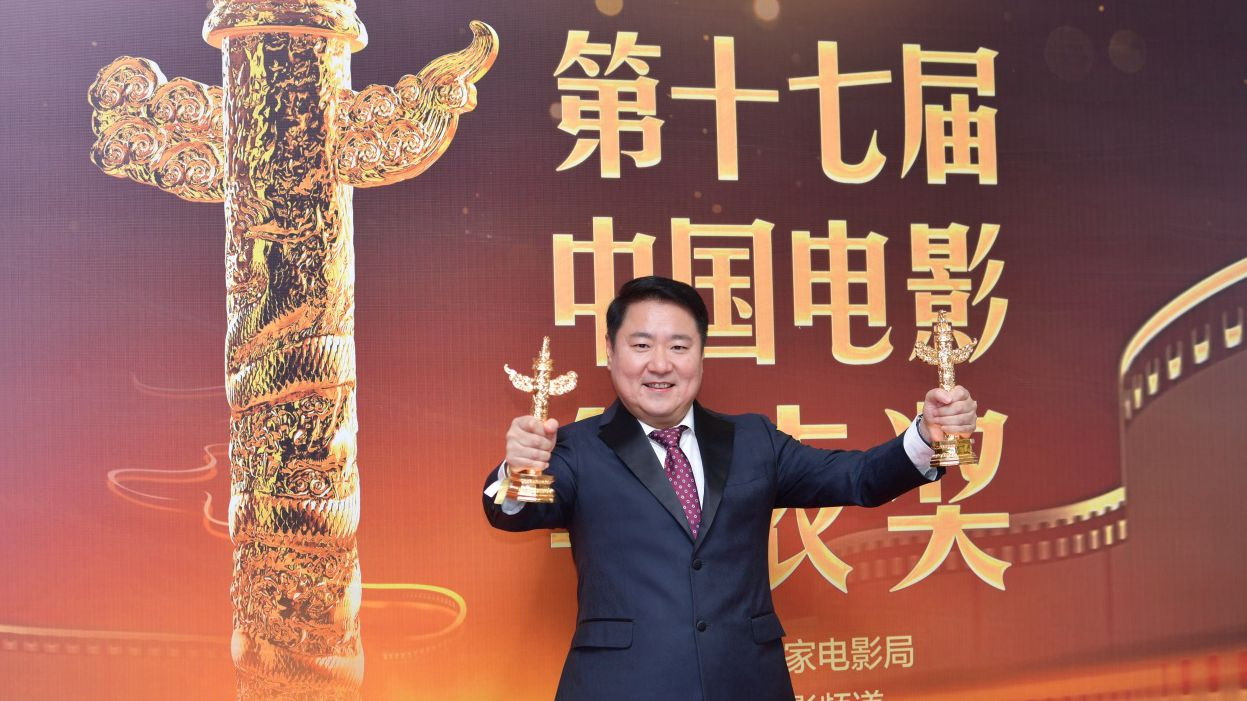
Films
18:12, 09-Jan-2019
Yu Dong: A pioneer in the Chinese film industry
Updated
17:01, 12-Jan-2019
Yu Fengsheng
03:26

With more domestic movies making their way into local cinemas, China is now the world's second largest film market. This should give credit to the sterling work of many of the country's young filmmakers over the years.
Today, we met with one of China's pioneers in this area, a man who said he'd been on a mission to keep producing higher-quality material over the past two decades.
In 2018, three films produced by Yu Dong and his company were won the "Outstanding Film" award at the 17th Huabiao Film Awards ceremony. Among them was "Operation Red Sea" – the highest grossing film in China last year.
In 1990, when Yu entered the Beijing Film Academy, he never would've thought he would be able to achieve so much.

A still of the film "Operation Red Sea." /VCG Photo
A still of the film "Operation Red Sea." /VCG Photo
The Chinese film industry saw a downturn in the 1990s. It was then Yu decided to start his own company and to make films. "I only had 30,000 yuan at that time. That was the money I saved for my wedding. Later I borrowed 270,000 yuan from others. With 300,000 yuan in total, I started my company," said Yu.
In the 2000s, the development of China's film industry entered a new era as more Hong Kong filmmakers and movie stars came to the Chinese mainland to seek new opportunities.
In 2001, the Bona Film Group released its first Chinese mainland-Hong Kong co-production, "My Sisters and Brothers." The film was the second highest grossing film in China that year.
Yu said," 'My Sisters and Brothers' raked in 20 million yuan in the box office. More importantly, people in China got to know me and the Bona Film Group."

A poster of the film "The Taking of Tiger Mountain." /VCG Photo
A poster of the film "The Taking of Tiger Mountain." /VCG Photo
The Chinese film market faced big challenges from Hollywood commercial blockbusters since 2002. It was also the year Yu made the decision to produce domestic commercial films.
Together with famed Chinese director Zhang Yimou, the Bona Film Group released its first commercial film "Hero" by the end of 2002.
In 2004, the Bona Film Group's 3D epic action film "The Taking of Tiger Mountain," topped the Chinese box office during its opening week.
In bringing the epic story to the screen, Yu, together with Hong Kong director Hark Tsui, made notable efforts from character development and scene selection, to visual effects.

A poster of the film "Operation Mekong."/VCG Photo
A poster of the film "Operation Mekong."/VCG Photo
"The film depicts a heroic story that happened 50 years ago. How to make such an old story appealing to today's audience was a big challenge for us. We had to revamp it with the performance style, language and film techniques that they are familiar with," said Yu.
In 2015, the Chinese film industry saw a boom and earned a total of 44 billion yuan or 6.4 billion dollars in the box office.
It was also the year Yu and Hong Kong director Dante Lam started to work on "Operation Mekong" and "Operation Red Sea," which later became two of the best Chinese war films.
Thanks to the efforts of filmmakers like Yu, many say there will be a golden era for the Chinese film industry in the next decade.

SITEMAP
Copyright © 2018 CGTN. Beijing ICP prepared NO.16065310-3
Copyright © 2018 CGTN. Beijing ICP prepared NO.16065310-3